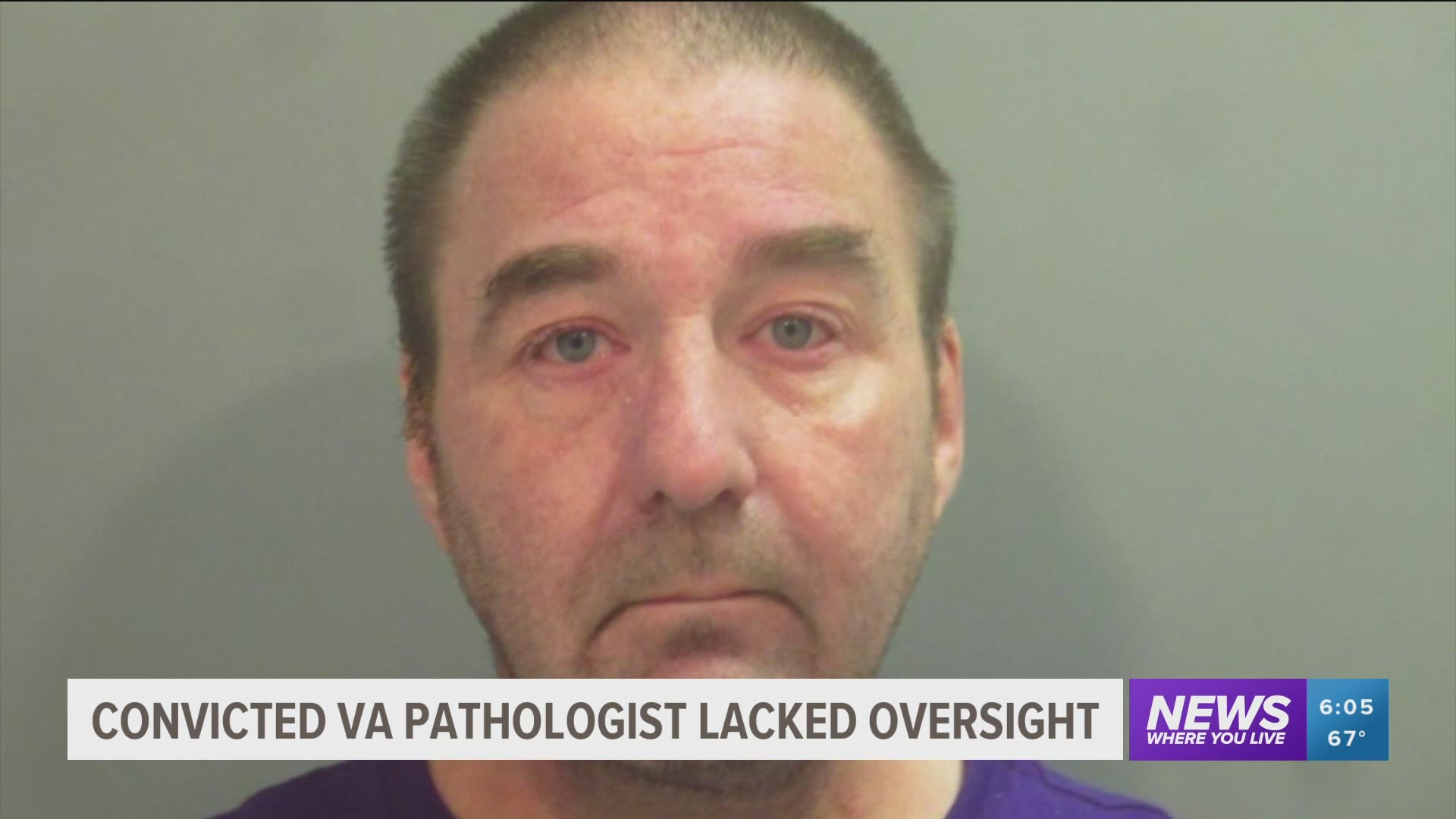FAYETTEVILLE, Ark. — An Office of Inspector General (OIG) report released Wednesday alleges a Fayetteville veterans hospital failed to manage a former pathologist that was convicted for manslaughter after misdiagnosing a patient.
In 2016, Dr. Robert M. Levy was removed from clinical practice at the Veterans Health Care Systems of the Ozarks because of a high blood alcohol content test during working hours but returned several months after attending a treatment program. As part of his return, he agreed to regular testing for drugs and alcohol use.
In Oct. of 2017, Dr. Levy was removed from the clinical setting for appearing to be impaired during work hours. His privileges were temporarily suspended while facility leaders prepared revocation paperwork. During that process, Levy was arrested in March of 2018 at a local post office on suspicion of driving while intoxicated. His removal from the facility was finalized four months following his arrest.
After his arrest, Dr. Levy admitted to OIG criminal investigators to be an alcoholic for 30 years. He bought a substance online similar to alcohol but more potent that was not detectable on drug and alcohol tests.
A review of his patient cases was launched during the completion of his firing. After finding numerous errors, facility leaders contacted a Veterans Health Administration (VHA) official for assistance and a review team was established.
The team determined that all of Dr. Levy's cases from the start of his career at the facility in 2005 needed to be reviewed. The team reviewed almost 34,000 cases. Final results revealed over 3,000 errors in cases, including 589 major diagnostic discrepancies. Two of the discrepancies resulted in fatal cases, the team determined.
Those two fatal cases included a patient that underwent a prostate biopsy in 2012 that Dr. Levy reported being benign. The team of reviewers identified cancer in two of the six biopsy specimens. Once the patient was notified of the cancer diagnosis in 2018, treatment was limited to palliative care. The patient died in late 2020. The second patient was treated for small cell cancer after Dr. Levy made the diagnosis in 2014. The patient died about a year later. The review team determined that the patient had squamous cell cancer of the lung, not small cell cancer. Treatment options for squamous cell lung cancer included surgery that was not offered to the patient.
Criminal charges were filed against Dr. Levy in the Western District of Arkansas in August of 2019. In 2020, he pleaded guilty to involuntary manslaughter and mail fraud. He was sentenced to 20 years in prison and ordered to pay $498,000 in restitution to VA.
During their review of Dr. Levy's actions, the OIG found that the facility's quality management process contributed to thousands of diagnostic errors.
The OIG claims the facility failed patients by allowing Dr. Levy to largely oversee himself in many aspects of the diagnosis of patients.
In the peer-review process of diagnosis, the OIG claims Dr. Levy only had one other pathologist review his diagnosis. The review stated that Dr. Levy had a strained relationship with the other pathologist responsible for reviewing his work and that Dr. Levy would override the other pathologist's findings when they did not agree. In this scenario, the OIG says a third pathologist should of have been contacted for review.
The report also states that Dr. Levy claimed there were zero discrepancies in diagnostics between 2009 and 2017.
The OIG claims that the facility also failed to factor into their decision to hire Dr. Levy in 2005 a previous conviction in 1996 related to driving while intoxicated.
The OIG concluded that if the facility had conducted a more robust evaluation of Dr. Levy's cases, the evaluation would have caught many deficiencies similar to the review team spotted.
It was also stated in the review that the facility failed patients by not taking concerns from other staff members concerned about Dr. Levy's impairment when concerns were mentioned starting in 2015.
Congressman Steve Womack released the following statement about the OIG's report:
“The report details an abject failure of leadership that led to the misdiagnosis and subsequent harm to hundreds of veterans who rely on the VA health system for care. It is unacceptable to limit accountability to the criminal conduct of Dr. Levy. I am disturbed by the complicit nature of the leadership chain that permitted a climate to exist that led to the horrific outcomes affecting these victims. Numerous signs of impairment were ignored, proper institutional controls were absent, and the end result was a terrible tragedy impacting our American heroes.”
Overall, the OIG determined that facility leaders failed to foster a culture of accountability to staff members that directly led to the death of two patients.
The OIG has recommended actions to ensure the facility can ensure the safety of patients and staff members.

